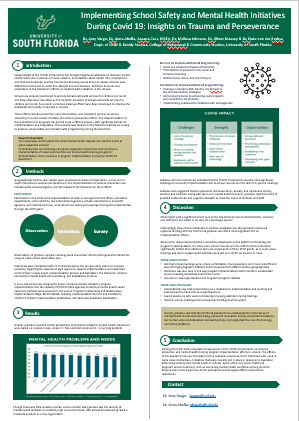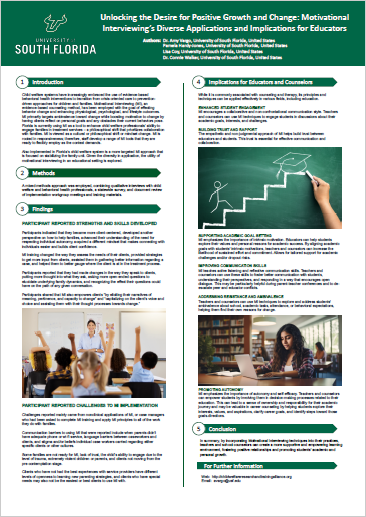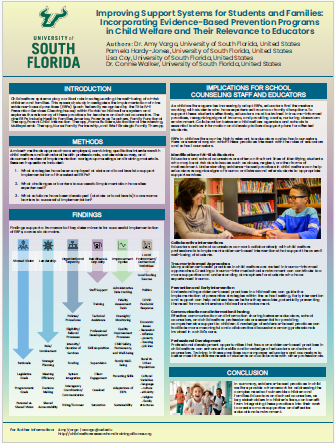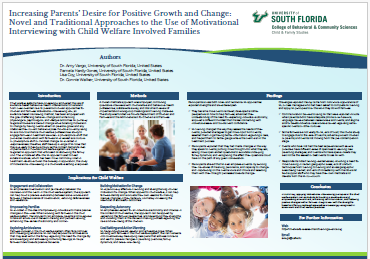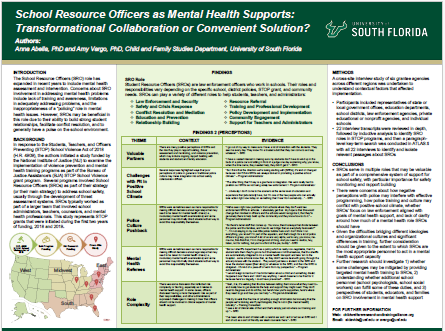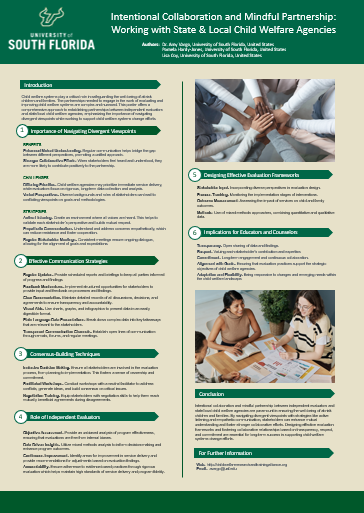
HopePath for Families is a comprehensive home- and community‑based family preservation, reunification, and support intervention for families who are at risk of having children removed from the home or who have already experienced a removal due to abuse or neglect. The program was developed by Canopy Children’s Solutions, a community-based behavioral health, educational, and family support organization in Mississippi. A research team at the University of South Florida, with support from Casey Family Programs, conducted a longitudinal quasi-experimental study using propensity score matching to examine the program’s impact on child welfare outcomes for families who participated in the intervention. Findings indicate that HopePath for Families had a significant positive effect on safety and permanency outcomes, including reduced likelihood of new maltreatment allegations, lower recurrence of child maltreatment, and decreased rates of removal and placement into out-of-home care.

Family Connections is a community-based prevention program for families with children who are at-risk for child maltreatment with the intent to increase protective factors, help families meet their basic needs, and reduce the risk of child abuse and neglect. In Florida, the Family Connections Collaborative was formed in 2013 by two community-based care agencies - Partnership for Strong Families (PSF) and Kids Central, Inc. (KCI) - to provide the Family Connections program with families in North Florida. The evaluation studies examined outcomes for child welfare involved families who participated in the program and provide a description of the Family Connections model and an overview of its implementation by the two agencies.

C.A.R.E.S. is a family-centered, strength-based, and community-driven model designed to reduce involvement in the child welfare system. Utilizing High Fidelity Wraparound and Family Team Conferencing, the program provides formal and informal supports to families experiencing stressors that may result in involvement in the child welfare system. This study consisted of a retrospective, quasi-experimental evaluation to examine the effect of the C.A.R.E.S. model on child and family outcomes for child welfare involved families. The study provides clear, actionable evidence for child welfare agencies, policymakers, and practitioners on the effectiveness of C.A.R.E.S. in improving child safety, permanency, and family well-being outcomes.

In this study, researchers examined factors that influence the implementation of violence prevention and mental health training programs in schools, with a particular focus on implementation readiness and school mental health capacity.

The Nurturing Parenting Program (NPP) was implemented by a child welfare communitybased care lead agency in Florida - Kids Central, Inc. (KCI) in alignment with the goals of the Families First Prevention Services Act (FFPSA) of 2018 that emphasized the importance of evidence-based interventions. NPP is a family-centered curriculum designed to improve the skills of parents and to provide resources to families and communities.

This study explores the link between opioid prescription rates and child removal due to parental neglect in Florida counties from 2012-2015. Findings reveal that higher prescription rates are associated with an increase in child removals, particularly in communities with a higher concentration of white residents. These insights underscore the need for policymakers to address the broader social impacts of opioid abuse on child welfare when shaping public health strategies.

The Family Intensive Treatment (FIT) team model provides specialized, family-centered support for parents in the child welfare system dealing with substance misuse. This study shows that FIT participation reduces new allegations of child maltreatment and accelerates child permanency outcomes. Parents in the FIT program also demonstrated significant improvements in emotional and protective capacities, mental health, and daily functioning.

The purpose of the paper is to examine child characteristics and child welfare services associated with high welfare costs, defined as the top decile of child welfare costs. Results indicate that older age of child, child sexual abuse and/or neglect, and inability of parent to provide care are associated with high child welfare costs. Parental substance abuse or domestic violence in the household are less common among children with high costs. High cost children are more likely to have serious behavioral problems perhaps reflecting the severity of these problems. Residential treatment and group home placements and services were also associated with having high costs.

This study examines how implementation fidelity impacts the effectiveness of the Life Skills Training (LST) program for middle schoolers, focusing on key factors like adherence, participant responsiveness, and quality of delivery. Findings show that student outcomes in social and emotional learning (SEL) were influenced by both individual factors (such as race/ethnicity and socioeconomic status) and classroom-level engagement.

This study explores the role of children's behavioral health services in supporting child safety and family reunification in cases of parental substance misuse. Findings indicate that while parental substance misuse hinders reunification, children who received mental health services were almost three times less likely to reenter out-of-home care after reunification. These insights highlight the critical importance of mental health services for children within child welfare systems.

This study investigates distinct substance use patterns among youth involved in child welfare, identifying two main trajectories: High Stable Use and Rapid Progression. Physical abuse emerged as a key factor differentiating these groups, underscoring the need for tailored interventions that address the varied substance use patterns linked to specific adverse childhood experiences.

Our Building Capacity to Create Community Change model is designed to help organizations strengthen their ability to implement effective, community-based interventions for mental health and wellness. By focusing on five key domains—Administrative Support, Leadership, Vision and Mission, Partnership Development, and Community Engagement—this model equips organizations to foster meaningful community change.
